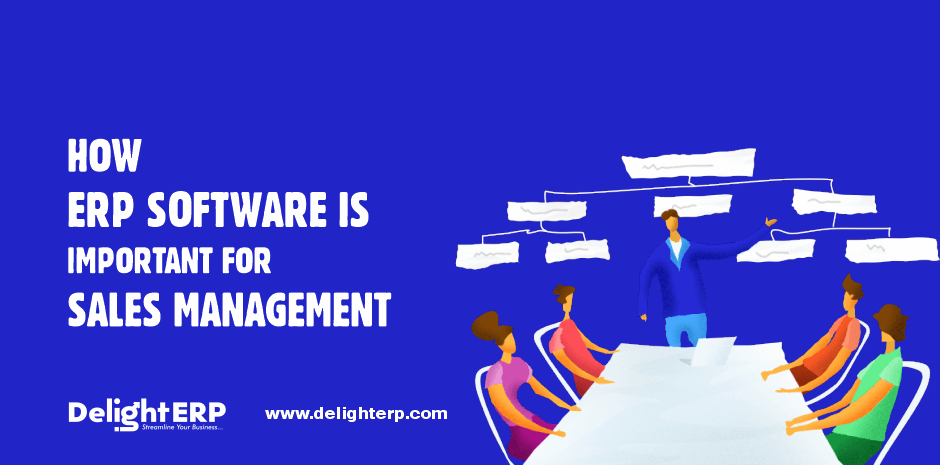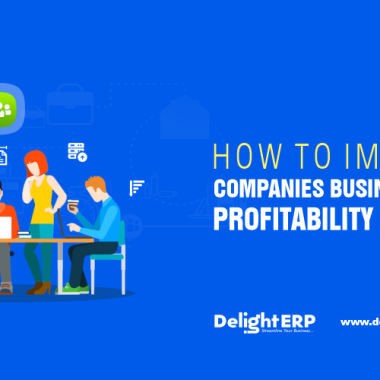Introduction
The influence of these systems is evident, with the worldwide ERP software industry estimated to be worth $41.69 billion by the beginning of 2021. While that figure is remarkable, people who have never used the program may struggle to comprehend why ERP is vital to their company. However, since globalization shrinks the market for many sectors, it is critical to seek all instruments to provide your company with a competitive advantage. For many companies, this is achieved through the use of ERP.
Organizations that manage their business operations in a unified and integrated system utilize enterprise resource planning (ERP). Supply chain organizations frequently use ERP to assist keep track of all the moving components of manufacturing and delivery. However, ERP may be used in various industries, including healthcare, charitable organizations, construction, and hospitality. ERP benefits may be used by organizations that need to manage their employees, customers, and inventories.
What is ERP Software?
Enterprise resource planning software is used to handle various company tasks, but what makes it superior to other options? Even while ERP has aims comparable to those of different systems, its particular characteristics set it apart in the software industry.
All data input into ERP is stored in a single database, allowing all departments to operate with the same information. Furthermore, all of this data may be aggregated, analyzed, and turned into reports. ERP combines customer management, human resources, business intelligence, financial management, inventory, and supply chain management into a single system.
In the face of fluctuating demand, costs, and other variables, distribution businesses confront several problems in managing their inventories, supply chains, and logistical activities. Legacy systems that cannot compete in today’s linked, fast-paced industry are being replaced with Enterprise Resource Planning (ERP) software. It can collect data from customers, suppliers, and equipment and give complete visibility into trends and operations. As a result, an ERP system may enhance distribution company management in the following ways:
Customer Satisfaction Has Increased
Real-time insight of goods in stock, in transit, and waiting to be reordered improves delivery times and customer satisfaction. An ERP system may also keep track of items that have been returned for whatever reason. It can optimize bidding, acceptance, entry, and fulfillment while reducing inventory and expenses. Simultaneously, process automation may aid in customer retention by providing speedier service, more accurate delivery, and faster response to any difficulties that emerge throughout the order fulfillment process.
Reduced Order Processing Times
Handling sales orders manually might result in human mistakes and costly delays. ERP software automates the processing of sales orders and the production of delivery orders. It may reduce delays while giving you complete control over everything from setting rules and credit limitations to managing numerous warehouses and drop shipments. Reduced cycle time from the order placing to product delivery can assist a distribution firm in meeting requests more effectively. Ordering and billing are done automatically by the system, with no human interaction required.
Improved Sales Management
ERP aids with sales management, as evidenced by Delight ERP features. It provides an integrated workflow that completely automates order processing throughout an organization. Users could easily configure order status and conditions for automatically applying for discounts and promotions. The program displays inventory, current price, and shipment information in real-time. It also connects with CRM systems to provide instant access to an order’s delivery status, associated tasks, and activity history. Furthermore, Delight distribution management software allows users to modify procedures to meet workflow or choose alternative order processes as per the customer or order.
Understanding Your True Costs
An ERP system may assist in the breakdown of expenses and profitability throughout a company and by warehouse, location, or particular manufacturing line. All accessible information is updated in real-time. The power of real-time data enables the ability to control costs across your supply and distribution chain. Regardless of whether your ERP system is charged per person or function, the cost of deployment can be covered by savings provided by streamlined business processes and enhanced accuracy and efficiency.
Recommended For You: Reasons Why Cloud ERP Is Ideal For Growing Businesses
How ERP Software is Important for sales management
Here are the eight reasons why any business should evaluate the relevance of enterprise resource planning (ERP) systems:
1. Enhanced Collaboration
The characteristics of ERP software differ widely based on the program, but all systems somehow promote cooperation. As previously said, the centralized database is an essential component of what distinguishes an ERP. With this database, you give your organization a single source of truth from which to work. This eliminates mistakes caused by working with erroneous data, thus lowering expenses.
Furthermore, because all team members have access to the company-wide data they require, a single database minimizes any reluctance or stalling throughout projects. Again, there is no need to combine data from multiple systems or sources. Because all of the data is compiled, saved, shared, and accessible through a single system, there is no need to worry about the data files’ accuracy, completeness, or security.
This is more difficult to say if your staff repeatedly input the same customer information into several platforms. Without an ERP system, you encourage human error into your operations, which might be easily avoided.
2. More cash saved
Although several suppliers have provided flexible pricing in recent years, ERP solutions are still a significant investment. For many, the program’s high expenses make it appear improbable that it will save your business any money at all. But at least once you get past those sticker shocks, it’s much simpler to understand how ERP may deliver a great ROI.
For starters, ERP integrates many of your organization’s disparate systems. From product development through accounts payable, your employees will access all the resources they need from a single centralized system.
By incorporating systems, you could assist your employees in making better use of their time. Users do not need to search for data across different systems while using ERP. The central database makes it much easier to obtain information. Furthermore, by removing the need for people to be educated on several techniques, your business saves money with ERP. This decreases not just the amount of money spent on training but also the logistical work required. Rather than organizing many training sessions with various suppliers, you need to communicate with one.
3. Improved Analytics
A centralized information database can also help you improve your analytics and reporting. Because an ERP records and saves all data entered by users, it is a fantastic business intelligence tool. As long as your provider delivers robust capabilities, ERP software makes it easier and faster for your team to create numerous reports. Without an ERP, reports that may take days to research and compile would require only minutes.
Most ERP packages provide a customized dashboard that allows executives to view information when connecting to the system. Income and cost statements and bespoke KPIs that offer insight into specific activities may be included in these reports. The ability to rapidly access these reports allows you and your team to make smarter decisions. You don’t need to rely on your IT department to create the reports you want. Finally, access permissions are often included with reports, ensuring that only appropriate corporate personnel see vital company data.
4. Happier Consumer
Customer management has never been more crucial. Nowadays, most people are looking to the internet for guidance on what to dress, what to eat, and how to conduct their lives. With 84 percent of consumers believing internet reviews as much as a friend, past customer feedback is more influential than ever.
Providing client-centered goods and services is the most effective approach to increase customer happiness. ERP does this in a variety of ways. To begin, most ERP systems include or can be readily linked with a customer relationship management (CRM) solution. With an ERP, your CRM may access data from many company departments.
An integrated CRM may offer you facts such as order history and payment information in addition to contact information. This allows your staff to perceive your clients more holistically, allowing them to grasp their goals and requirements better. The enhanced customer visibility aids in the development of your sales plan for increased lead creation.
5. Increased Productivity
Complex jobs are unavoidable using old approaches. Historically, tasks like creating reports, checking inventory levels, managing timesheets, and processing orders took staff hours to complete. These processes, in addition to eating uptime, reduce staff morale and expose you to human error. Even the most exemplary staff members are sure to make a mistake after the hundredth hour of inputting the same data line into multiple forms.
An ERP can automate your most time-consuming processes if you pick the proper system. The database in ERP software saves unnecessary procedures like data input and enables the machine to execute complex computations in minutes. This frees up your team members’ time to conduct more intelligent work, boosting your labor ROI. As a result, ERP increases your company’s production, efficiency, and profitability.
6. Risk Management and Simplified Compliance
It might be complicated to keep track of all the numerous restrictions on your organization as it grows and does business in multiple nations. Even small businesses must comply with a slew of environmental, information security, and human resource laws.
Fortunately, many ERP solutions are designed with these laws in mind, allowing you to stay in compliance at every level. Furthermore, ERP software has auditing capabilities to help with recording things like chemical usage and tax requirements. This makes it extremely simple to create reports and transmit them to the appropriate regulatory authority.
Furthermore, ERP frequently includes risk management capabilities. The increased dependability and accuracy of this solution improve overall financial management by reducing the possibility of accounting mistakes. Forecasting software also enables users to forecast events related to demand, labor, and budget. You can establish more secure budgets, timetables, and product development plans using this information.
7. Resource Management and Enhanced Production Planning
ERP also handles production in addition to inventory. ERP offers visibility into all production processes, including those on the shop floor. This helps users to maximize capacity by optimizing production schedules, equipment, and workforce.
ERP also controls your Bill of Materials (BOM) and fixed assets. This program allows users to effortlessly generate and update BOMs while also keeping track of all prior modifications. Improved asset management enables customers to schedule equipment maintenance to avoid unexpected downtime, boosting profitability and supply chain connections.
8. Improved Inventory Control
Tracking and managing rising inventory levels is a crucial problem for developing businesses. ERP uses barcoding, RFID tags, and serial numbers to track inventory at every stage of the supply chain. These tools assist you in keeping track of inventory levels at various warehouses, which products are in transit, and which items are on the shelves and available for customers. The improved warehouse visibility dramatically improves the pick, pack, and ship process, reducing any guessing.
Inventory tracking improves reporting because tracking technology gives more precise statistics. Users may set up unique KPIs to observe which goods move the fastest, indicating more demand and increasing carrying costs. Warehouse managers may obtain real-time data on their inventory with the increased accuracy given by ERP, allowing them to make more precise business choices.
Conclusion
If you pick the appropriate system, the value of ERP far surpasses the initial cost, time, and effort needed in deployment. More information on features and functionalities, installation goals, and questions to ask suppliers may be found in our Delight ERP’s Website. With enough thorough study and thinking, you’ll discover Delight ERP applications that give all of the benefits stated above, creating a picture of why ERP is vital to a business.


